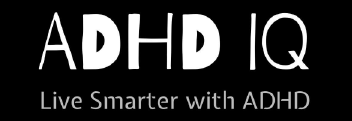ADHD (attention deficit hyperactivity disorder) and anxiety closely present similar symptoms and can be difficult to identify.
If you have ADHD, it may be difficult to recognize the symptoms of anxiety. ADHD is an ongoing condition that often starts in childhood and can continue into adulthood. It can affect your ability to concentrate, and may result in behavioral problems, such as:
- hyperactivity
- lack of attention
- lack of impulse control
- fidgeting and trouble sitting still
- difficulty organizing and completing tasks
An anxiety disorder is more than just feeling occasionally anxious. It’s a mental illness that is serious and long lasting. It can make you feel distressed, uneasy, and excessively frightened in benign, or regular, situations.
If you have an anxiety disorder, your symptoms may be so severe that they affect your ability to work, study, enjoy relationships, or otherwise go about your daily activities.
The symptoms of ADHD are slightly different from those of anxiety. ADHD symptoms primarily involve issues with focus and concentration. Anxiety symptoms, on the other hand, involve issues with nervousness and fear.
Even though each condition has unique symptoms, sometimes the two conditions mirror each other. That can make it difficult to tell whether you have ADHD, anxiety, or both.
How can you tell the difference?
Though a professional evaluation is necessary, family members may be able to tell the difference between ADHD and anxiety. The key is to watch how your symptoms present over time.
If you have anxiety, you may be unable to concentrate in situations that cause you to feel anxious. On the other hand, if you have ADHD, you’ll find it difficult to concentrate most of the time, in any type of situation.
If you have both ADHD and anxiety, the symptoms of both conditions may seem more extreme. For example, anxiety can make it even more difficult for someone with ADHD to pay attention and follow through on tasks.
